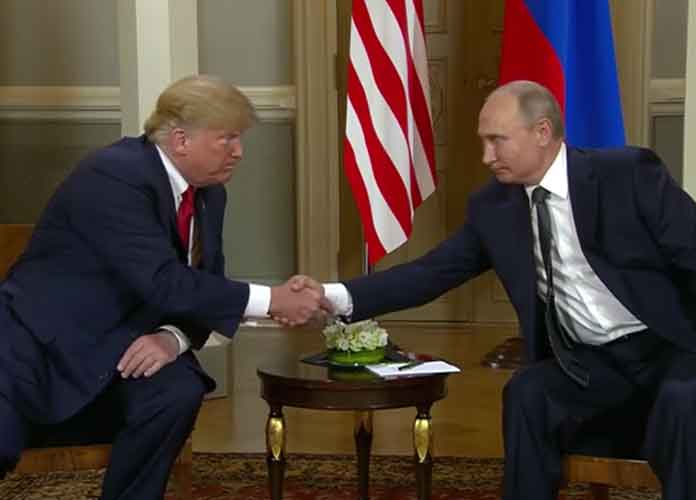Russia Infiltrated Election Databases In All 50 States In 2016, According To Senate Intelligence Committee
The Senate Intelligence Committee has reached the conclusion that Russia targeted election systems in every state. The attack was mostly unnoticed by government officials at the time.
Senators from both parties are urging intelligence agencies to take action in 2020.
The most noteworthy attacks took place in Arizona and Illinois. The cyberattacks looked for areas of weakness in the election systems that could potentially be hacked. The report found that while there was no evidence of any changes made to votes made at voting machines, the Russian’s “were in a position to delete or change voter data.”
In Robert Mueller’s testimony before Congress on Wednesday, he warned that the 2020 elections are at risk for further cyberattacks and interference. Mueller also noted that more nations are quickly developing the resources that could be used to affect U.S. elections.
Subscribe to our free weekly newsletter!
A week of political news in your in-box.
We find the news you need to know, so you don't have to.
Although both Democrats and Republicans have expressed the need for election security, Senate Majority Leader Mitch McConnell continues to block the issue from being debated on the Senate floor.
McConnell has argued that enough has been done to protect voter systems after $380 million was granted so that states could update their election systems. McConnell criticized Democrats for what he said was a “highly partisan” bill that’s only purpose to question the legitimacy of Donald Trump’s presidency.
Senator Chuck Schumer (D-New York) stated that the security of U.S. elections is a bipartisan “issue… of national security” and “of protecting the very integrity of American democracy.”
The report details what led to American intelligence agencies gross underestimation of the Russian interference, how senators ignored warnings and resisted agencies efforts to help.
The committee concluded that Russia’s main intelligence agency, the G.R.U, and others to a lesser extent, had the intent of “exploit[ing] vulnerabilities” in the 2016 election infrastructure. For reasons unknown to investigators, the Russian agency did not act on this intent. More worrying is the investigation’s findings that G.R.U choose to archive the plans for potential use in future elections. It was also found that Russian officials had asked to have observers at polling places during the 2016 election.
Large sections of the report titled Russian Active Measures Campaigns and Measures in the 2016 Election, have been blacked out and redacted. This is the report’s first volume, later editions will deal with the affect Russia’s use of social media had on the elections and a number of connections between Russians and members of the Trump campaign.
Chair to the Senate Intelligence Committees Richard Barr (R-North Carolina) posted a statement about the report on Twitter. “Since 2016, we’ve learned much more about the nature of Russia’s cyber activities and better understand the real and urgent threat they pose,” he said.
2/ Since 2016, we've learned much more about the nature of Russia's cyber activities and better understand the real and urgent threat they pose.
— Richard Burr (@SenatorBurr) July 25, 2019
The committee offered a number of solutions to better secure the elections such as having a back-up paper ballot. They also suggested having a meeting with other countries about “new cybernorms.”
A complete overhaul of America’s election infrastructure seems unlikely, especially with some states complaining of not to have the money to fix major issues. The committee also reported that a number of states still have databases that could easily be tapped into. The report does not name which states have this problem but instead uses numbers to protect the states.
While Burr’s claim of a change seems promising, other senators are expressing their weariness about the report. Sen. Ron Wyden (D-Oregon) stated that there are no laws in place that force states to take measures for cybersecurity.
The report states that President Barack Obama’s cybersecurity coordinator, Michael Daniel, had thought Russia had spread its attack to all 50 states, but was seemingly ignored. Two years after these statements, the committee found that he was right.
Get the most-revealing celebrity conversations with the uInterview podcast!








Leave a comment